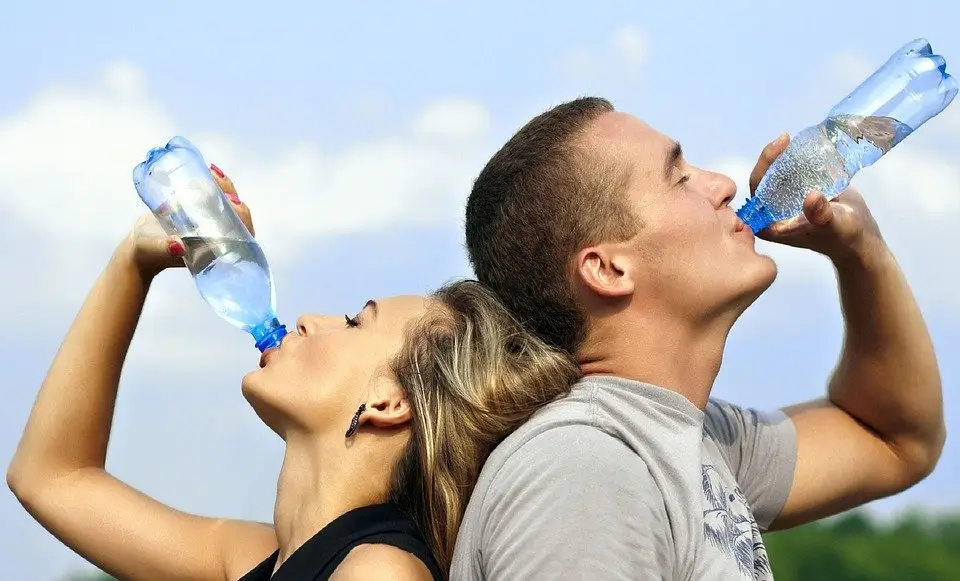Staying hydrated is one of the most fundamental aspects of maintaining good health.
Our bodies comprise nearly 60% water; every cell, tissue, and organ relies on adequate hydration to function optimally.
However, many people struggle to drink enough water daily, leading to dehydration and its unpleasant side effects. They don’t even know how to stay properly hydrated.
In this comprehensive guide, I’ll share valuable insights and practical tips to help you stay properly hydrated and ensure your body receives the hydration it needs to thrive.
Why Proper Hydration Matters
Before diving into the “how” of staying hydrated, let’s first understand the significance of proper hydration.
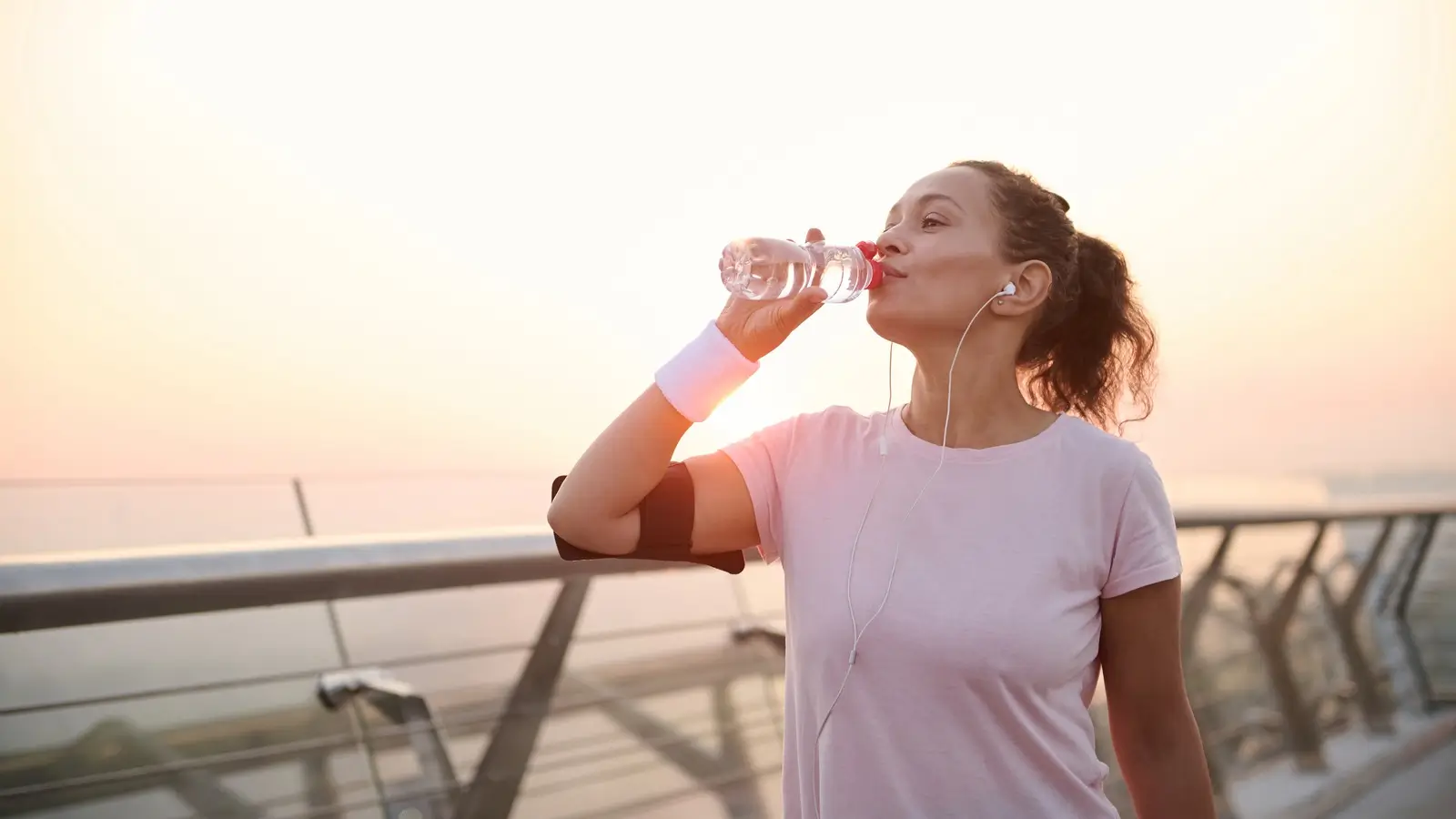
Water plays a vital role in countless bodily processes, including:
- Regulating Body Temperature: Water helps regulate your body temperature by facilitating sweat production and evaporative cooling.
- Lubricating Joints: Adequate hydration ensures that your joints are well-lubricated, reducing friction and promoting flexibility.
- Aiding Digestion: Water is essential for proper digestion, enabling the breakdown of food and the absorption of nutrients.
- Transporting Nutrients: Water is a transportation system that carries essential nutrients to cells throughout your body.
- Flushing Out Toxins: Proper hydration supports the kidneys in their vital role of filtering waste and toxins from the body.
- Boosting Cognitive Function: Even mild dehydration can impair cognitive abilities, such as focus, concentration, and memory.
- Improving Mood: Dehydration can contribute to fatigue, irritability, and low mood while staying hydrated can positively impact your mental well-being.
Recognizing the Signs of Dehydration
Knowing the signs of dehydration is crucial, as it can help you take proactive steps to rehydrate before more severe symptoms set in.

Some common signs of dehydration include:
- Thirst: While thirst is a clear indicator of dehydration, it’s important to note that you’re already slightly dehydrated by the time you feel thirsty.
- Dark-colored urine: Pale yellow or light-colored urine is a sign of good hydration, while dark yellow or amber-colored urine can signal dehydration.
- Dry mouth and lips: A lack of saliva production and dry, cracked lips can indicate insufficient fluid intake.
- Headaches and dizziness: Dehydration can cause headaches, lightheadedness, and dizziness, particularly upon standing.
- Fatigue and weakness: Feeling unusually tired or weak can be a symptom of dehydration, as your body is working harder to perform essential functions.
If you experience these signs, you must increase your fluid intake immediately to avoid further dehydration.
Keto Diet Foods: Benefits & Side Effects - What to Avoid
How Much Water Should You Drink Daily?
While individual hydration needs can vary based on factors like age, activity level, and climate, a general guideline is to aim for around 8 cups (64 ounces or 1.9 liters) of water per day for the average adult.
However, it’s important to note that this is a rough estimate, and your requirements may differ.
Instead of relying solely on a specific number, it’s best to listen to your body’s cues and adjust your water intake accordingly.
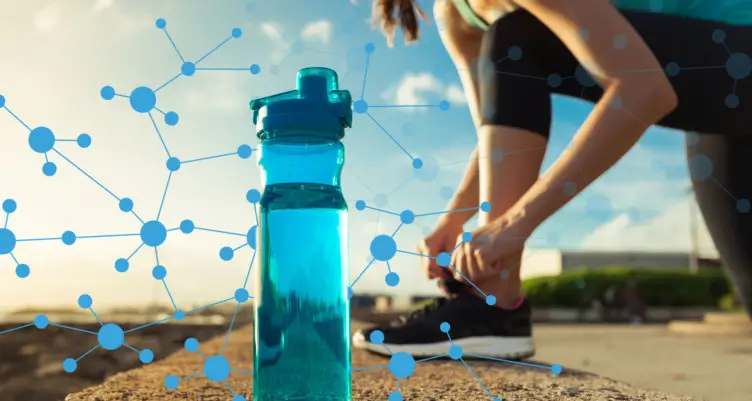
If you’re physically active, live in a hot or humid environment, or have certain medical conditions, you may need to consume more fluids to compensate for increased fluid loss.
10 Hydrating Foods
Staying hydrated is essential for overall health, and you can boost your hydration not only through drinking water but also by consuming water-rich foods.
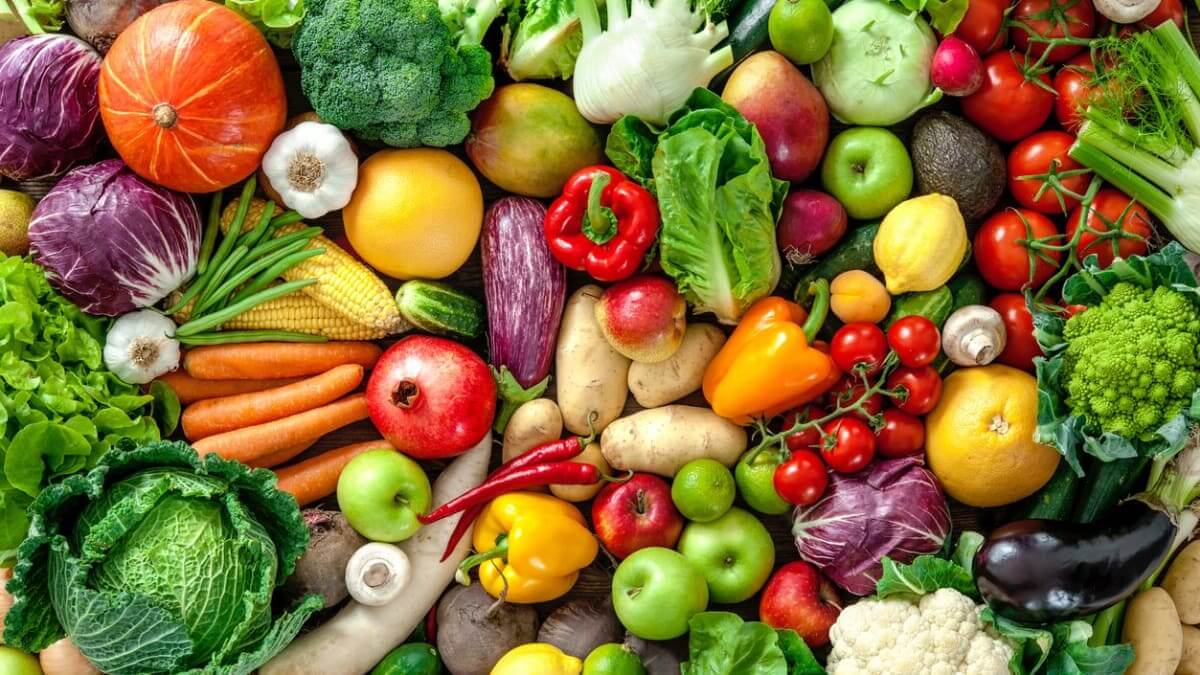
Here are 10 hydrating foods that can help you maintain proper hydration:
- Watermelon:
- Water content: 92%
- Besides refreshing, watermelon provides essential nutrients like vitamin C, A, and magnesium. It’s also low in calories, making it a great choice for hydration.
- Strawberries:
- Water content: 91%
- These juicy berries contain fiber, antioxidants, and vitamins (including vitamin C). Regular strawberry consumption has been linked to reduced inflammation and various health benefits.
- Cantaloupe:
- Water content: 89%
- Cantaloupe is a sweet and juicy melon rich in vitamins A and C. It’s perfect for snacking or adding to fruit salads.
- Peaches:
- Water content: 89%
- Peaches are delicious and hydrating. They contain vitamins, minerals, and antioxidants that contribute to overall well-being.
- Oranges:
- Water content: 86%
- Citrus fruits like oranges are juicy and provide vitamin C and other nutrients. Enjoy them as a snack or freshly squeezed juice.
- Cucumbers:
- Water content: 95%
- Cucumbers are incredibly hydrating and low in calories. Add them to salads and sandwiches, or enjoy them as a crunchy snack.
- Celery:
- Water content: 95%
- Celery is light, fibrous, and hydrating. It’s a great addition to soups, stir-fries, or as a crunchy snack with hummus.
- Romaine Lettuce:
- Water content: 95%
- Romaine lettuce is hydrating and a source of vitamins and minerals. Use it as a base for salads or wraps.
- Zucchini:
- Water content: 94%
- Zucchini is a summer squash that adds moisture to your meals. Try it grilled, sautéed, or spiralized as a pasta alternative.
- Spinach:
- Water content: 91%
- Spinach is rich in iron, vitamins, and antioxidants. It can be used in salads, smoothies, or cooked dishes.
Remember to incorporate these water-rich foods into your diet to stay well-hydrated and support your overall health!
How to Stay Properly Hydrated?
Now that you understand the importance of proper hydration and the signs of dehydration, let’s explore some practical strategies for staying hydrated throughout the day.
Carry a Water Bottle
Having a reusable water bottle with you always can be a game-changer when it comes to staying hydrated.
Not only is it eco-friendly, but it also serves as a constant reminder to sip water throughout the day.

Choose a bottle you enjoy using and keep it within reach, whether at your desk, in your bag, or in your car.
Set Reminders
In our busy lives, forgetting to drink water regularly is easy. Setting reminders on your phone, smartwatch, or computer can help you stay on track with your hydration goals.
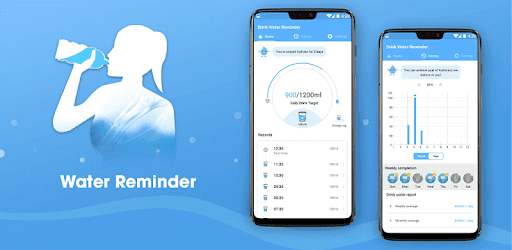
You can set reminders to drink water at specific intervals, such as every hour or after completing certain tasks.
Flavor Your Water
If you find plain water unappealing, try adding slices of fresh fruit, herbs, or vegetables to infuse it with natural flavors.
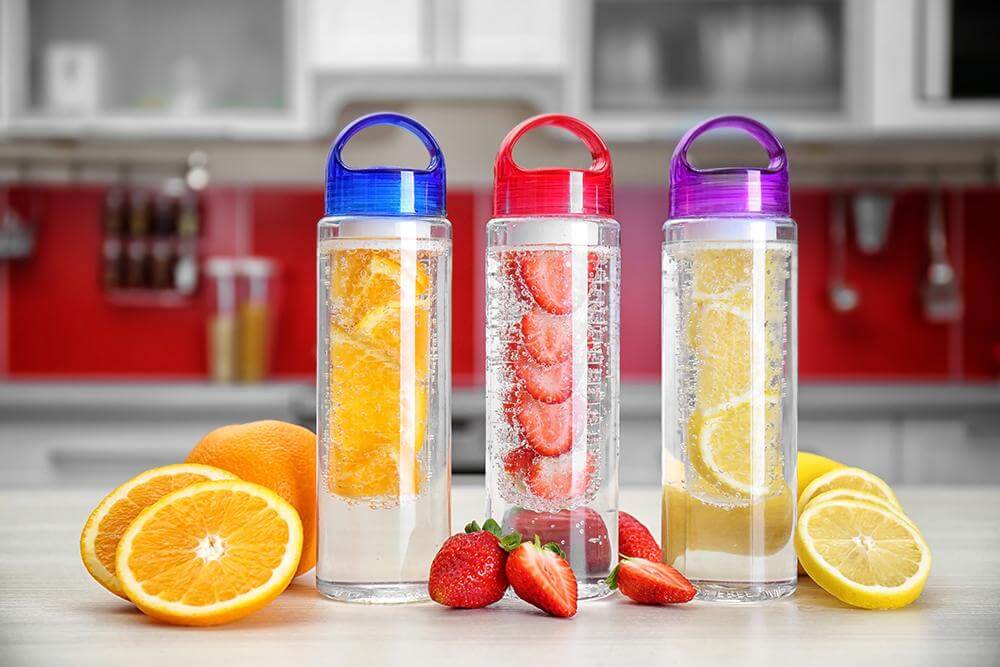
Some popular options include lemon, lime, cucumber, strawberries, mint, and ginger. Not only does this make water more enjoyable, but it also provides additional nutrients and antioxidants.
Eat Water-Rich Foods
While drinking water is essential, you can also obtain fluids from water-rich foods.
To boost your hydration levels, incorporate foods like watermelon, cucumbers, tomatoes, berries, and leafy greens into your diet.
Is Fruit Tea Good for You?
These foods contribute to your overall fluid intake and provide valuable vitamins, minerals, and fiber.
Limit Dehydrating Beverages
While staying hydrated is important, not all beverages are created equal. Caffeine, alcohol, and sugary drinks can contribute to dehydration by acting as diuretics, promoting fluid loss.
- Is Chai Tea Good for You?
- Is Tapee Tea Good for You?
- Is Starbucks Doubleshot Energy Good for You?
- Is the Detox Island Green Smoothie Good for You?
If you consume these beverages, be sure to compensate by increasing your water intake accordingly.
Track Your Hydration
Using a hydration tracking app or simply keeping a water log can help you monitor your daily fluid intake and ensure you’re meeting your hydration goals.
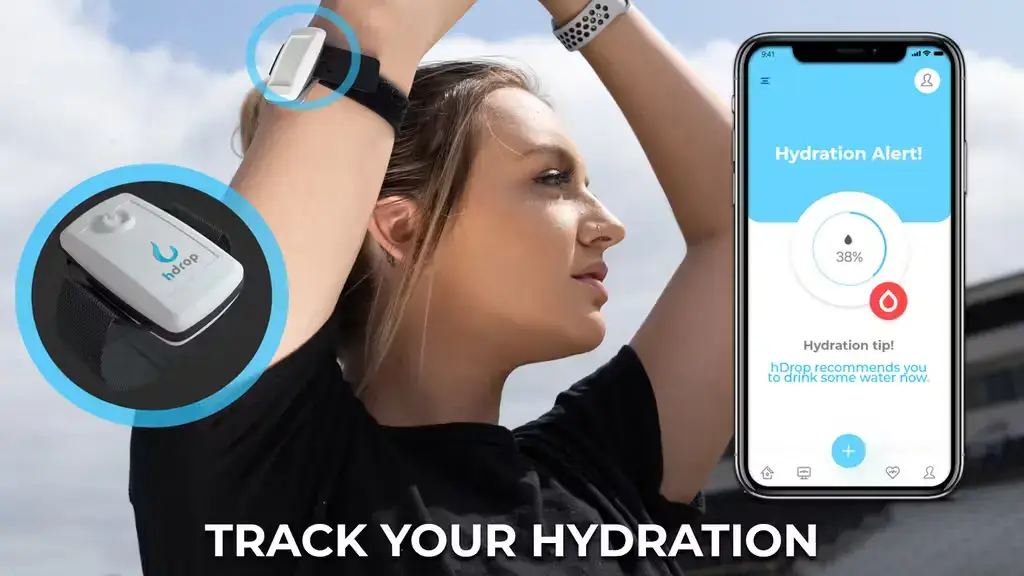
These tools can also provide reminders and progress reports, making developing and maintaining a consistent hydration routine easier.
Hydrate Before and During Exercise
Exercise can lead to significant fluid loss through sweating, so it’s essential to hydrate before, during, and after physical activity.
Drink water in the hours before your workout, sip water during exercise breaks, and replenish fluids afterward to replace what was lost.
Consider Your Environment
Your hydration needs may vary depending on your climate and environment.
Hot, humid conditions or high altitudes can increase fluid loss, so adjusting your water intake is important.
When traveling or spending time in different environments, be mindful of your hydration levels and adjust as needed.
Final Thoughts
Staying properly hydrated is a simple yet profound step towards maintaining optimal health and well-being.
By understanding the importance of hydration, recognizing the signs of dehydration, and implementing practical strategies to increase your fluid intake, you can ensure your body receives the water it needs to function at its best.
Remember, staying hydrated is an ongoing process, and consistency is key.
So, raise your water bottle, take a refreshing sip, and prioritize hydration as part of your daily routine for a healthier, more energized life.

